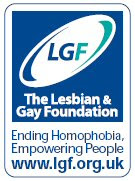In January I wrote about lesbian rights advocate Carina Vance being named to the Rafael Correa's presidential cabinet in Ecuador as the country's Health Minister.
The stunning news coincided with news that the government was finally taking action in shutting down clinics that were promoting treatments to "cure" homosexuality. Efforts to raise awareness about these clinics were led by Fundación Causana, which Vance used to lead, and were the basis of online campaigns from Change.org and AllOut.org.
Both organizations celebrated victory based upon the news and members of Fundación Causana sent a photo thanking AllOut.org and their followers for making a difference.
The news quickly traveled around the world with the Associated Press and CNN running initial reports. But it was weeks later that The Christian Science Monitor published the most comprehensive report on Vance's appointment and the existence of these clinics ("Ecuador clinics said to 'cure' homosexuality stir debate", Feb. 10, 2012).
The article revealed that not everything had been settled between LGBT-rights advocates and the government. Advocates still claim the government is willfully hiding information about the clinics and has demanded more action while the government argues that they are still in the process of gathering information and will eventually take action. Advocates also say that of 226 clinics, only 23 were shut down and they allege that most of them have reopened. From the article:
The government last year publicized the closing of 30 centers, though gay rights groups say it was only 23. The clinics were all shut down because of minor infractions, such as expired medicines, lack of fire exits, and lack of hygiene. Some did not even have a valid license. Most opened up again after a few days.When Vance was appointed to the Health Ministry in January, she was taking over an office that seemed to be in disarray and was charged with restructuring the country's health system to make it more effective. By all accounts, she has hit the ground running and has had little time to sleep.
Gay rights organizations say the government is not doing enough to investigate crimes and close illegal operators for good. However, Carina Vance, a prominent gay rights activist who was appointed Ecuador's minister of public health last month, says the government is committed to a long-term strategy to change the clinics.
“It is a complex and urgent issue that needs a comprehensive intervention,” says Ms. Vance.
Although local media have barely covered the situation with the clinics, Ms. Vance has made several statements to international media on the issue and has promised to address the situation. And last week, on February 17th, the Health Ministry released a 10-minute video in which she addresses the issue head on. It's short on specifics but indicates there is commitment.
Below is the full clip (turn 'annotations' on to read my on-screen translation). Full English language transcript below the fold.
Related:
- 'Ex-gay' movement on the rise in Latin America (EDGE, Feb. 21, 2012)
Reactions:
- Ecuador Health Minister Slams Ex-Gay Clinics (Box Turtle Bulletin)




















